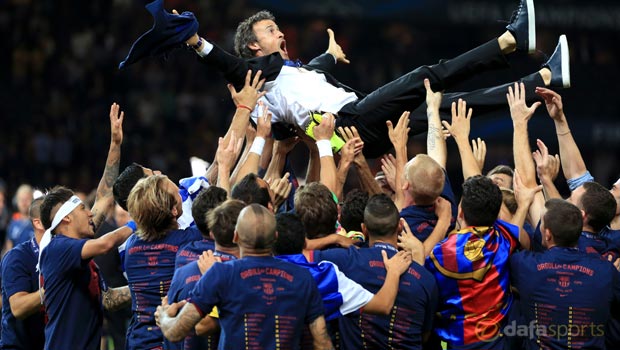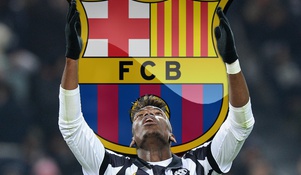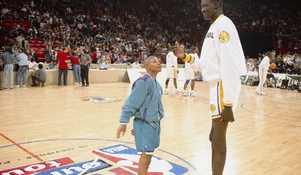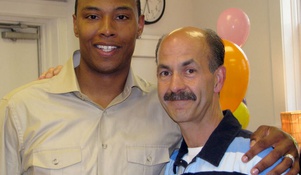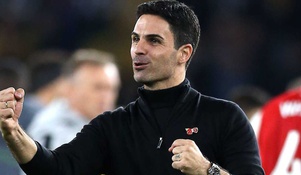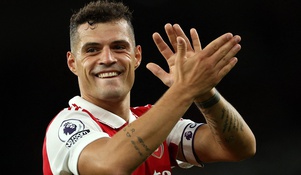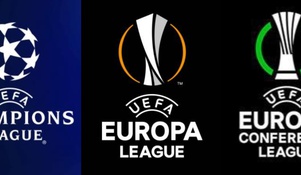Unmitigated greatness is back - Barca win a second treble.
On a Tuesday after Barcelona completed its second treble in six years, there is very little praise that hasn't already been heaped on the Pride of Catalonia, but a performance so immensely impressive can't be left without a comment.
In the offseason I wrote a post focusing on what Barca must do to return to dominance. Today, I return to those ideas and analyze it in light of Barca's success. My post focused mainly on three ideas which I deemed key in ensuring that Barca doesn't suffer through another trophyless season. These points included both footballing ideas and ideological and organizational ideas, which highlights that despite keeping the nucleus of the team and a general footballing philosophy, the club had to make significant adjustments to return to the top.
Now let's revisit last summer's to do list:
1. Admit that the competition has gotten significantly better and act accordingly.
I claimed that Barca thought they could continue making little tweaks to a once successful project and still be good enough to win. They underestimated the influence of coaching and thought that as long as they have the likes of Messi, Iniesta, and company, they'll be just fine. They were wrong. The coach needs to be a strong figure in the Barca locker room. Motivating players who have accomplished everything there is to accomplish is no easy task, especially for someone with as little name recognition as Tata Martino. As much as all the players loved the late tactically-brilliant Tito Vilanova, he didn't strike anyone as a particularly charismatic leader. Luis Enrique is a former Barca captain. A guy who played for Real Madrid, but never felt at home there, and wearing the blaugrana jersey scored at Bernabeu, grabbed the jersey and glared at the Madrid faithful with pleasure. That's a guy you don't screw around with and Barca did a good thing by bringing him in. But more on that later.
88 million Euros for the Golden Boot winner – now that's admitting you've got to get better! Luis Suarez was somewhat of an unpopular pick despite coming off a season where he was the best goalscorer in Europe and put in a couple of inspiring World Cup performances for Uruguay. All for it all to be marred by another inexplicable biting incident that landed him a four-month suspension and didn't manage to bring down his price. He proved to be brilliant. His statistical production compared to Liverpool understandably dipped a little in Spain (though 25 goals and 16 assists is more than respectable), he was imperative in providing another weapon in crucial matches this season where he superbly took the pressure off Messi and proved to be a match-winner – just ask David Luiz and the PSG defense.
Rakitic fit into the team very well. He matched Xavi with his tiki-taka type passing while being much more of a goalscorer and a constant threat from outside the box, thus providing Barca with more versatility – something the team has struggled with in the past. He capped off a great debut season by scoring the all-important first goal in the Champions League final.
Barca's executives also realized that defense needed strengthening up at all costs. Staring a transfer ban in the eye, they were willing to overpay for the oft-injured Vermaelen and the 30 year old, cigarette-smoking Mathieu. While, Vermaelen missed the entire season and can't possibly be described as a good transfer, I consider the transfer understandable and I'm unwilling the write off the former Arsenal captain just yet. Mathieu on the other hand proved to be exactly what Barca needed. His versatility allowed Enrique to rotate him with Mascherano and Pique in the middle, while he was also able to aptly substitute for Alba on the left. And he scored on Madrid, which only increases his value in my mind.
We also adjusted our gameplay. I wrote last year that 70% possession should no longer be the focus because tiki-taka and the obsession with possession has become counterproductive and only introduced stagnation to the offense and allowed defenses to sit and wait. We were more direct this year. We even counterattacked sometimes for goodness sake! When things were getting stagnant against Madrid in the home game we played a ball 40 meters in the air into the path of our new proper number 9, Suarez, who controlled it stupidly well with the first touch and clinically slotted it home with the utmost precision with the second. We dominated the rest of the match after that. Three touches – game over.
2. Somebody good must leave.
I thought this should have been Xavi or Busquets. I thought Xavi lost his genius and I stand by it. He is still a master passer, but those passes rarely open up defenses like they used to. He proved to be valuable as a substitute, especially in controlling the game and finishing off the opponents. Busquets put in a solid season, improving in the second half after a poor beginning of the season highlighted by an abysmal performance in the first Liga match against Madrid when he was as bad as I've ever seen him. Depending on his replacement, I maintain he was a good candidate for departure.
The good player that ended up leaving was Cesc Fabregas, who went to Chelsea for a mere 33m Euros, three of which Barca owed to Cesc himself so we essentially let him go for 30, after buying him two seasons earlier for over 10 million more following a prolonged and exasperating transfer saga. Cesc put in a great championship caliber season with Chelsea while threatening to break the all-time Premier League assist record, only to come up two short with 18.
Alexis Sanchez also left the club after seemingly finding his feet last year and enjoying a very impressive World Cup. Alexis was replaced by Suarez, which is an upgrade. Barca actually turned a profit on the transfer and Sanchez put in work for Arsenal good enough to earn him a place on the shortlist of players considered for PL Player of the Year award.
I believe the above is not enough to criticize Barca's decision-making on the transfer market. Mainly because, well, it all worked! But also, the chemistry aspect which may have been significant in explaining why it worked. The point that somebody good must leave also applies to Xavi. As an absolute legend at the club, not an 8 time Spanish champion, Xavi was given an honest assessment of his position on the team and was allowed to make his own decision about whether he wants to remain with the blaugrana in a reduced role, or move on. He chose the former and undoubtedly had a calming influence on the locker room along wit Iniesta and Pique, which was crucial at one point in the season, which bring me to the most important point of all.
3. Overall Messidependensia was the problem and had to end.
And it did! Luis Enrique, team leadership, Luis Suarez and Neymar, and most of all Messi himself deserve a tremendous amount of credit. I stated in the offseason that Messidependensia had two faces – both important, but unequally. The less important, much talked about, part of Messidependensia was the excessive reliance on his superb individual skills at points in games where Barca struggled to find inspiration. The Argentine wizard then often aimlessly tried to gallop through multiple defenders who focused their entire defensive preparation on him.
This ended. This year, when Messi went on those runs, like the legendary one he showed against Bilbao in the Copa del Rey final, stemmed out of his sheer genius, not necessity or lack of a better idea. Suarez added versatility to the front line, but more importantly, he added pure quality. Both he and Neymar are players capable of winning games for Barca and Messi enjoyed the luxury of having players capable of winning games for him.
And it seemed he realized it and adjusted. I maintain – the primary reason why Barcelona won the treble this year was Messi's willingness to play on the wing. Ibrahimovic, Eto, and David Villa were all truly great players who had to leave the club because they were getting in the way of the 'false nine' position created out of necessity by Guardiola for Messi during Pep's reign. Messi realized he wasn't willing to go through a season without raising his rands in true triumph. And he for damn sure wasn't gonna watch another ridiculous Ballon d'Or acceptance speech by Ronaldo.
And Luis Enrique had an approach to dealing with this – fall in line. No matter who you are, Messi, or who your wife is, Pique, you fall in line. He was known for this approach after budding heads with Roma's captain and legend Francesco Totti. He seemed unwilling to budge on his egalitarian beliefs while Messi seemed unwilling to accept his role as a mere mortal when he knew he was the best in the world. This got bad – legitimately bad, to the point where stories that the press often makes up were actually true – they didn't speak, talks of Enrique leaving no matter what success he achieved were real, and the once ludicrous notion of Messi's departure from Barcelona became plausible with the fear of his departure peaking when Messi liked Chelsea's fanpage on Facebook where people concluded, through tears in their eyes, that he must be packing his bags.
This is when Barca's footballing leadership, primarily Iniesta and Xavi, the two captains, essentially struck a deal with Luis Enrique. Everybody falls in line – on a couple of conditions – you stop experimenting with the squad and let the best and most accomplished players have a little more freedom. And it also seemed they told him never to sub out Messi. They reached a compromise – and it worked! And it produced one of the greatest accomplishments in sports history.
They didn't just get some of their mojo back – they won everything. And did it in style, as only Barca can. No Spanish team, with all of Barca's dream teams and Madrid's early dominance and Galacticos eras, has ever won the treble. Barca is now the only team, overall, to do it twice. And Messi, Alves, Pique, Xavi, Iniesta, and Pedro actually played for both teams.
Football involves a lot of passion. Football's passion and emotion were clearly evident at the end of the CL final – all grown ass men – shedding tears because of a game. When Barca players, who have accomplished everything already, get emotional, it shows how much they wanted to win. How addictive the feeling of being champion is. Juve players cried because they fell short. Nobody really expected them to win – but if they themselves didn't actually believe they could do it, they wouldn't have cried. There was a great shot of Pogba, a 22 year old flamboyant playmaker, with funky hair, deemed the world's most exciting prospect and a Barcelona target, who knows he has more time, walking side by side with Pirlo – a 36 year old, ultra-accomplished genius, who knows his time is running out – both weeping.
Greatness is to be appreciated. And there was a lot of greatness on both teams on that pitch on Saturday. And no matter what one's footballing allegiances are, I refuse to believe that one can objectively look at this Barca team, embroiled in scandals, hit with transfer bans, chased by world-class rivals, haunted by a brutal press, and at times even dysfunctional form the inside, and not appreciate its greatness.
Barca often points to its Mes que un Club (More than a club) motto to highlight everything that it stands for. But sport, and particularly football is at the heart of Barca. The stratospheric levels of quality on the pitch lay the foundation and allow Barca to be everything else that it is. And this year Barca rebuilt that foundation. And from the looks of it, these players really like winning, and Pogba seems to be the next brilliant footballer to adopt the “'if you can't beat'em, join'em” approach. At that point the rest of the footballing world will look on, knowing exactly the magnitude of the challenge involved in beating Barca. Good luck, folks!
